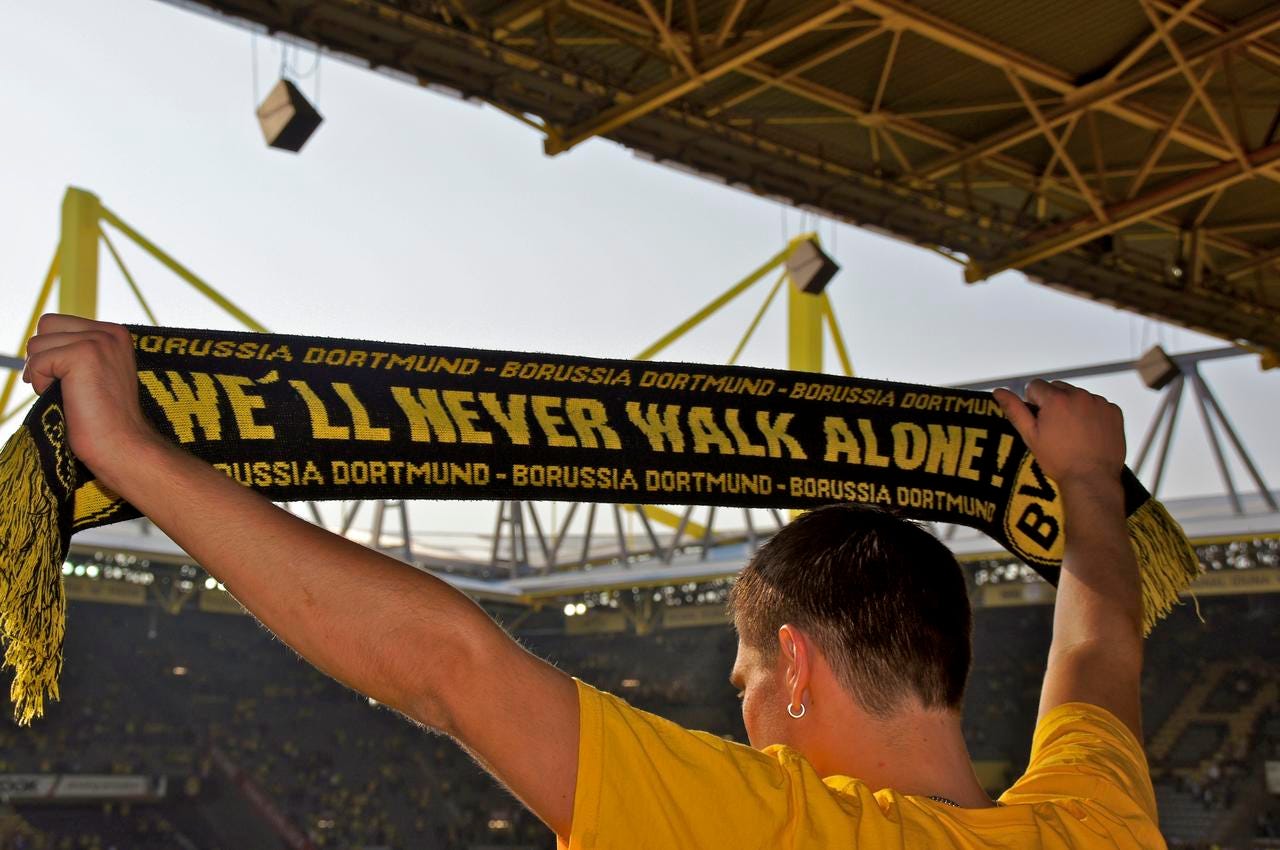The Greatest Fans on Earth
A startup soccer team in Dortmund once gave the steelworkers and coalminers of this hardscrabble German city something to live for. A century later, their die-hard descendants are still bleeding black and yellow.
A bit of pressure that lands on, I assume, a lot of freelance writers at the start of a potential reporting journey is the weight of the question, “What’s the story?” or a variation like, “Are you going to get the story?” While I can appreciate the idea here, the anticipation of the chase, it can all feel a little loaded sometimes. We’re not 1940s Acme reporters chasing down the scoop and filing over a payphone to an editor halfway through a puffed-up cigar. We’re just, hopefully, curious people who like to write. A few times during a 2014 trip around the world to write about soccer fanatics in the lead-up to the World Cup in Brazil, I ran up against the mild conundrum of having inspiration for a literary flourish or structure, but no gripping “story” to sell.
While in Dortmund, Germany, that year, though, I had a rare revelation. I didn’t have a “story” story, I realized. I just had a couple of things I wanted to write. But f*ck it. Not every story has to begin or end where you want it to — actually, not every story has to begin or end at all. Sometimes it’s nice to just write whatever you want to write. The Borussia Dortmund soccer team is playing in the UEFA Champions League final next Saturday, June 1. In honor of the highly anticipated match against Real Madrid — the most important moment in global professional club soccer this year — I went back and read the “story” I wrote about a few things I noticed in that city, this now-Narratively Classic, for the first time in 10 years. I’m no soccer expert anymore (probably never was) but I think there will always be items and threads in Dortmund for any writer to excavate. If any of the people who live there get a chance to read this, I hope I did you right!
—Matt Negrin
There are cities that have everything, there are cities that have nothing, and somewhere between glistening skyscrapers and fallen walls is a city that has one thing.
That place is Dortmund and that thing is soccer.
Dortmund barely existed until the late 1800s, when a steel factory was built. The steel workers who brought their families to create this city in northwest Germany worked all day killing themselves, and then formed a soccer team and found they had more energy after work.
Borussia Dortmund, or BVB, was formally introduced in 1909 as a club for the men of steel and coal, to provide a weekly exertion that didn’t consist solely of beer and gambling. It gave them something to live for other than surviving diseases and broken limbs.


